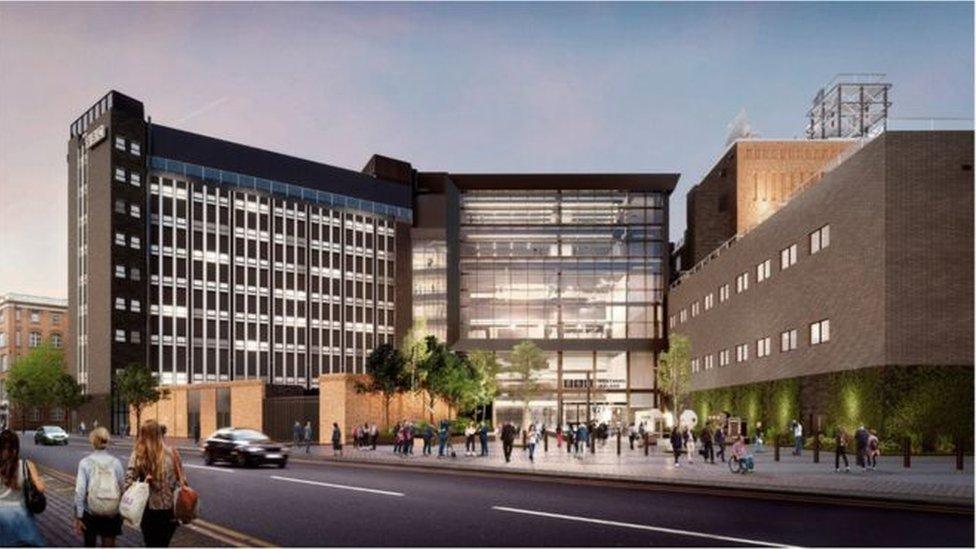BBC NI job cuts: BBC Northern Ireland to lose 36 posts
- Published
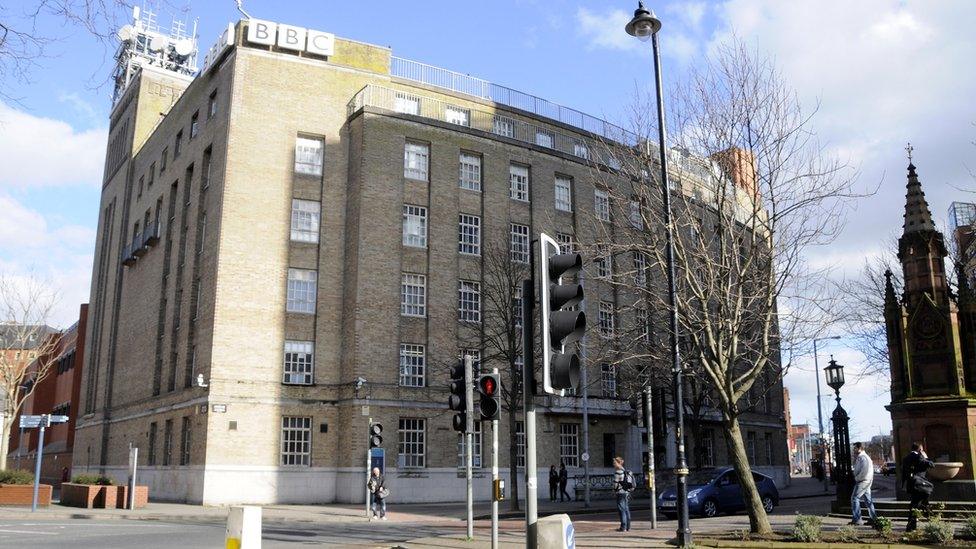
The BBC in Northern Ireland employs about 600 people
BBC Northern Ireland (BBC NI) is planning to close 36 posts in an attempt to make £2.3m of savings and invest more money in online services.
According to the most recent BBC annual report, BBC NI has a workforce of about 600.
The BBC said it hopes "the majority" of post closures will be achieved through voluntary redundancy.
The corporation also said that some programmes on Radio Ulster and Radio Foyle would be "impacted" by the plans.
That includes the daily breakfast news programme on Radio Foyle and the weekly Inside Business programme on Radio Ulster.
However, more money is set to be spent on BBC Northern Ireland's online and digital services, including the BBC iPlayer.
Staff and trade unions will now be consulted on the savings plans.
As a whole, the BBC announced proposals to make £500m in annual savings and to become a "digital-led" organisation in May 2022.
That included plans to employ up to 1,000 fewer people in the publicly-funded part of the BBC over the next few years.
Channels like CBBC and BBC Four are to be moved online and a single news will replace separate UK and world channels.
In January 2022, the then Culture Secretary Nadine Dorries confirmed the BBC licence fee is to be frozen at £159 for two years.
SDLP leader Colum Eastwood said the cuts were "an absolute disgrace"
According to the BBC's most recent annual report for 2021/22 the number of adults who watch BBC TV each week has fallen, whereas use of digital services like the iPlayer, BBC online and BBC Sounds has risen.
BBC Northern Ireland spends about £55m a year on local programmes and services across TV, radio and online.
'Absolute disgrace'
Radio Foyle, based in Londonderry, will also lose its hourly bulletins.
Foyle MP Colum Eastwood said people in Derry and the north west have been "badly served by the BBC today" and the cuts were an "absolute disgrace".
"This is an attempt to close BBC Radio Foyle down by stealth," the SDLP leader added.
"Over half of the newsroom staff in Foyle are going and that will make it totally unsustainable.
"The flagship programme, The Breakfast Show, is going and anybody knows that once you remove the flagship programme, you're basically removing the station.
"We all pay our licence fee, there is nobody in Radio Foyle on massive wages, they are all ordinary working people who are either losing their job or losing their station, it's being gutted and it's shameful."
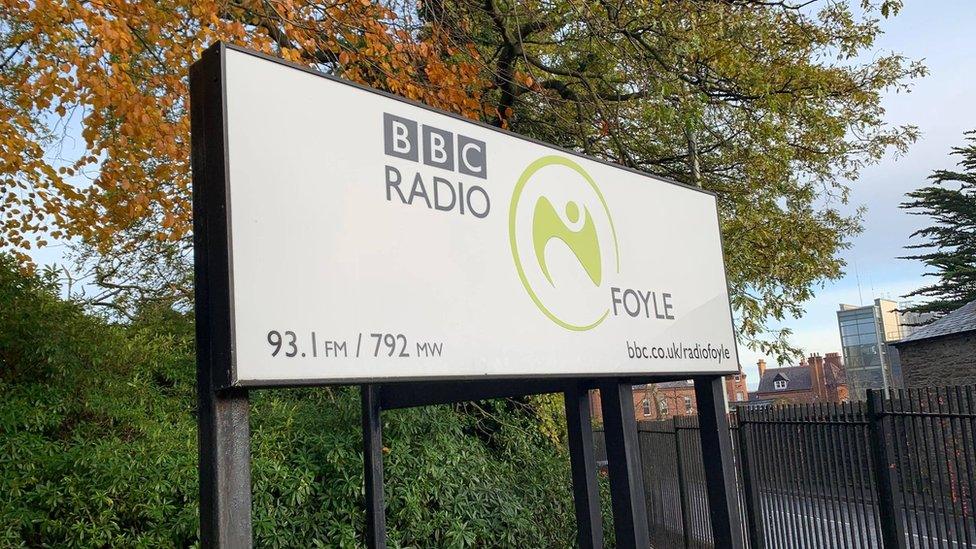
The Democratic Unionist Party (DUP) MP for East Londonderry, Gregory Campbell, said the news came as "a bolt from the blue".
"I don't think people saw the Radio Foyle announcement coming as it did," he told BBC Radio Ulster's Talkback programme.
He added: "What they [the BBC] do well is local news and they do that very well.
"I think what will happen here is that it will become quite Belfast-centric.
"My fear and the fear of many will be that Radio Ulster will become effectively BBC Radio Greater Belfast. That's the fear.
"There is a regional localised radio station in the north west and if we lose that, what will the BBC put in its place?"
'Huge anxiety'
The mayor of Derry City and Strabane District Council, cllr Sandra Duffy, has written to the BBC to express her deep concern.
She said the news was causing "huge anxiety" for the workers who are learning that they will lose their jobs.
"It will also have a hugely detrimental impact on the people of Derry who rely on this institution for local news and coverage," she said.
The NUJ said the decision to end Radio Foyle's breakfast programme and news bulletins was a betrayal of the people of Northern Ireland.
"This is an attack on the very essence of public service broadcasting," said Seamus Dooley, NUJ assistant general secretary.
"Radio Foyle is part of the cultural landscape of the north west with a wide listenership on both sides of the border. The diminution of services in Radio Foyle is of particular concern and will be strongly resisted by the NUJ.
"If redundancies are implemented, they should be on a voluntary basis."
'Difficult choices' for BBC
In a statement BBC Northern Ireland said that its plans "reflect a BBC-wide strategy to prioritise digital content, announced earlier this year, and the need to manage inflationary and other cost pressures".
"BBC Northern Ireland is proposing to close approximately 35-40 posts to contribute to its £2.3m savings and reinvestment plans," the statement continued.
"Efforts have been made to limit the effect of proposed changes on the scope and benefits of BBC services in Northern Ireland and local staff teams."
The interim director of BBC Northern Ireland, Adam Smyth, added that the corporation faced "some difficult choices, none of which are easy".
"We have to find monies to maintain and develop our local presence on BBC iPlayer and to absorb cost pressures across different aspects of our work," he said.
"Our concern in all of this will be to safeguard audience value and benefit and to remain mindful of the impact that this announcement will have on BBC staff in Northern Ireland."
BBC NI had previously scaled back plans for a £77m redevelopment of Broadcasting House in Belfast.
BBC NI also said that other ongoing UK-wide operational and staffing reviews may also "impact other locally-based teams and roles next year", but gave no further details about what that might mean.
Related topics
- Published17 January 2022
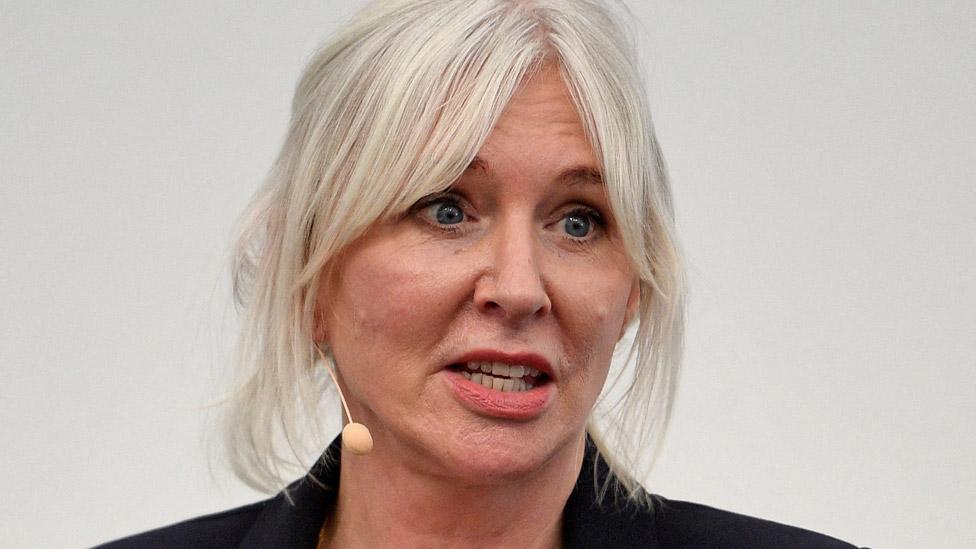
- Published29 November 2022
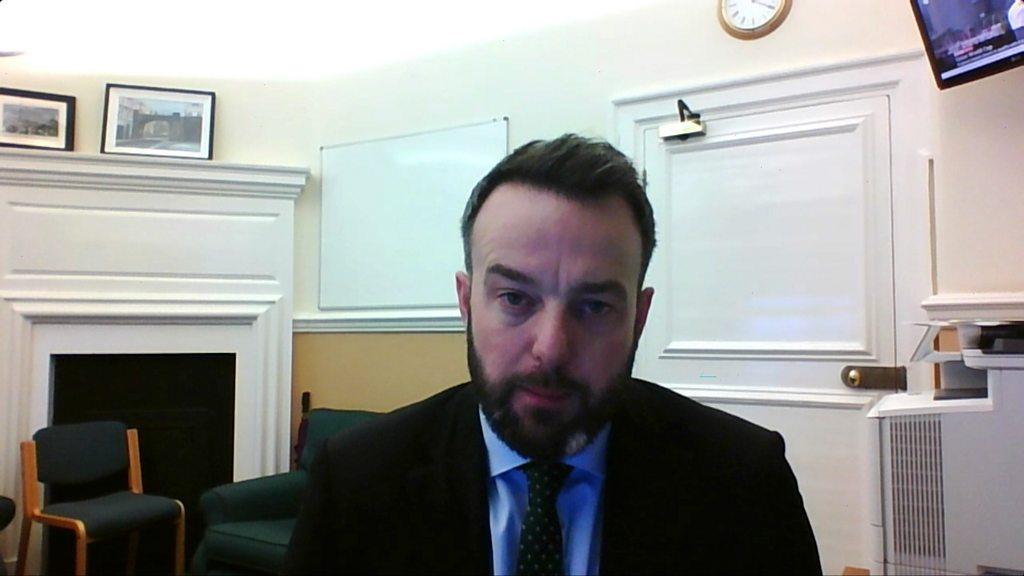
- Published1 May 2020
